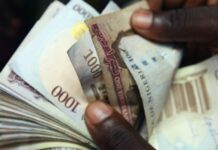By Francis Ogwo
The harsh effects of the ravaging coronavirus pandemic on global economy would further deplete the standards of living of Nigerians and push a fresh 20 million citizens into poverty by 2022, the World Bank warns.
The country director of the globe’s apex bank, Shubhan Chaudhuri, in its “Nigeria Development Update (NDU)” launched on Thursday listed some salient steps for the country’s managers to take in order to avoid this calamity.
However, Chaudhuri insisted that the Bank will not release the much expected $1.2 billion loan to ameliorate the effects of the pandemic until Nigeria’s Central Bank further devalue the naira.
According to the report, in the next three years, an average Nigerian could see a reversal of decades of economic growth and the country could enter its deepest recession since the 1980s.
“The pandemic is disproportionately affecting the poor and most vulnerable, women in particular.
“In the absence of measures to mitigate the impact of the crisis, the number of poor could increase by 15 to 20 million by 2022.
“Food insecurity has increased substantially and economic precarity is on the rise because unemployed workers have migrated to the low-productivity agricultural sector,” the report stated.
The report titled, “Rising to the Challenge: Nigeria’s COVID Response” reviews the recently implemented reforms and proposes policy options to towards surviving the harsh impact of COVID-19 and foster a resilient, sustainable, and inclusive recovery.
Chaudhuri added that: “Nigeria is at a critical historical juncture, with a choice to make. Nigeria can choose to break decisively from business-as-usual, and rise to its considerable potential by sustaining the bold reforms that have been taken thus far and going even further and with an even greater sense of urgency to promote faster and more inclusive economic growth.”
Further prediction from the NDU fears that the economy could shrink up to four percent in 2020 following the twin shocks of COVID-19 and low oil prices.
To avoid the economic calamity, however, “Nigeria can build on its reform momentum to contain the spread of COVID-19, stimulate the economy, and enable the private sector to be the engine of growth and job creation.
“It can also redirect public spending from subsidies that benefit the rich towards investments in Nigeria’s people and youth in particular, and lay foundations for a strong recovery to help make progress towards lifting 100 million people out of poverty,” said Marco Hernandez, World Bank Lead Economist for Nigeria and co-author of the report.
Looking ahead, the NDU discusses policy options in five areas that would help mitigate the effects of the crisis and support Nigeria’s recovery, including, managing the domestic spread of COVID-19 until a vaccine is available for distribution; enhancing macroeconomic management to boost investor confidence.
Others are safeguarding and mobilizing revenues; reprioritizing public spending to protect critical development expenditures, and supporting economic activity and access to basic services and providing relief for poor and vulnerable communities.
During the launch which held virtually, Chaudhuri who acknowledged efforts that had been put into reforms since April by authorities insisted that they were not enough as more has to be done before it can approve a $1.5 billion loan.
According to the National Bureau of Statistics (NBS) recently released the “2019 Poverty and Inequality in Nigeria” report,40 percent of the total population, or almost 83 million people, live below the country’s poverty line of 137,430 naira ($381.75) per year.
The NBS report is based on data from the latest round of the Nigerian Living Standards Survey, conducted in 2018-2019 with support from the World Bank’s Poverty Global Practice and technical assistance from the LSMS program.
A recent statistics from weforum on the effects of the ravaging pandemic says “Nigeria’s economy contracted by 6.1% year on year in the second quarter of this year, latest reports from Nigeria’s statistics bureau show.
“The dip follows thirteen quarters of positive but low growth rates. The -6.1% decline is also Nigeria’s steepest in the last 10 years.
“As with most other economies around the world, the sharp drop in Nigeria’s GDP growth is largely down to the slowdown in economic activity after the country resorted to a lockdown back in April to curb the spread of the virus. In the wake of the pandemic the World Bank forecast a decline of -3.2% for 2020 a five percentage point drop from its previous projections,” the release concluded











